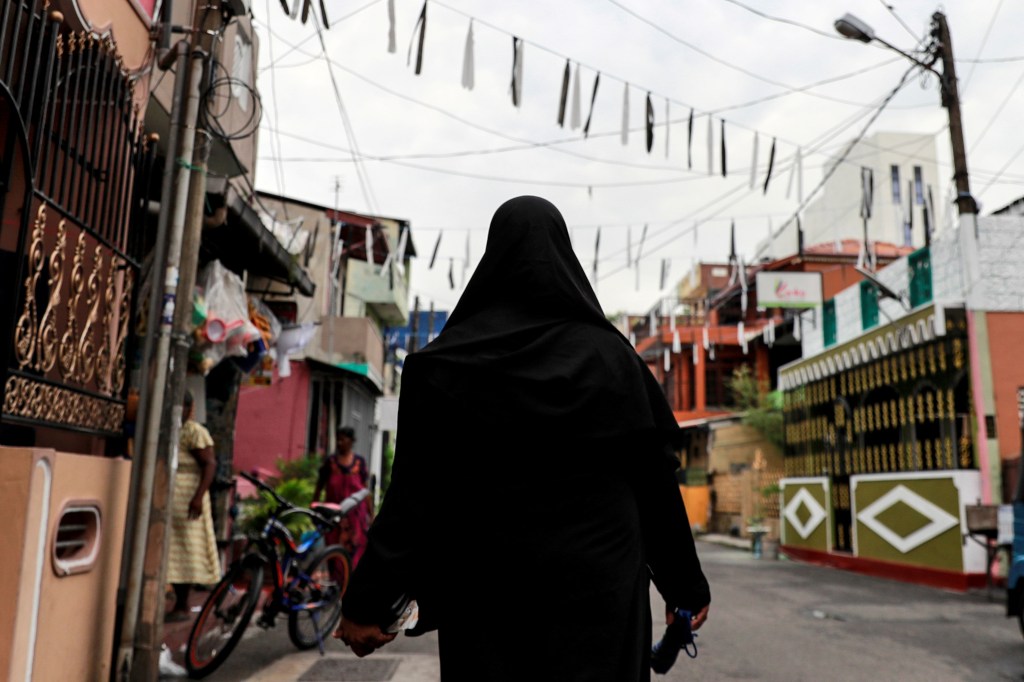The first time I wore a hijab, covered from head to toe with the face uncovered, was when my family and I visited the City of Medina on our way to Mecca in 2008. I was excited because this was the first time I truly felt like I was a part of my father’s religion. I come from a mixed family. My mother, my sister and I are Catholic, while my father and two brothers are Muslim. My mother makes the kanji (a kind of porridge made during Ramadan) while my father cooks the Christmas dinner—and we kids never felt anything amiss. That is, until the Aluthgama attacks in 2014—which saw a clash between Sri Lankan Muslims and hardline Buddhists—and my mother asked my brothers to stay home for a few days until the situation was under control.
Five years later, the Easter Sunday attacks devastated the entirety of Sri Lanka, with over 250 dead and more than 500 injured. Ever since ISIS claimed responsibility for the attacks three days after the bombs went off, the fear, suspicion and panic have increased in the country. Sri Lankans are looking at their fellow Sri Lankan Muslims with wariness and uncertainty. Those who have “Muslim looking” beards are being surrounded and questioned in public. People with Muslim names are being rejected by local taxi drivers. And the burqa and niqab have become a much debated topic, even though the suicide bombers were all in plain sight, with their faces uncovered.
Videos by VICE
Then, on April 29, Sri Lankan President, Maithripala Sirisena issued a statement banning all face veils under an emergency law put in place following the attacks.
A burqa is an item of clothing worn by some Muslim women that covers the entire body with a mesh over the eyes, while the niqab is a full-face veil with an opening for the eyes. Sri Lanka has now joined 13 other countries—including Austria, Denmark, France, Chad, the Netherlands, China and Morocco—to ban the burqa.
Although the majority of the Muslim women who wore the burqa, the niqab or any other covering in Sri Lanka are willing to comply with the law for public protection, some are still being harassed for wearing a hijab or even a simple shawl before the ban took place.
Speaking to VICE, Khansa Nalir, a 34-year-old who works in business development in Colombo, said, “My mother, sister and I had already planned to forego the niqab before they announced the ban. We were willing to take it off voluntarily, hoping that there would be no need for a ban. Unfortunately, things didn’t work out the way we hoped.”
Khansa further added that the government took this “rash” decision to ban the niqab as a knee-jerk reaction, to divert attention from their “mistakes” and to placate a group of individuals, who have been vying for the ban for a few years now, on grounds of “threat to national security” and to do away with the “symbol of oppression of women”.
“This decision was taken to exert control over a situation the officials have lost control over. None of the stakeholders such as the niqabi women were consulted before the ban was put in place. Some people have been wearing the niqab for over 30 years and it is a very big part of their identity,” she added. “Are they not citizens of this country? What about their rights? It is not right to ask them to suddenly take this off especially when the burqa and the niqab were not an issue up until the Bodu Bala Sena came into the picture against all things Muslim. And now, the burqa has become the biggest issue to everyone, and April 21 has been forgotten.”
Others like Shaahidah Riza, a 29-year-old law graduate from Rajgiriya, understood the ban but worried about its permanence. She said that while a temporary ban that allows the forces to weed out the guilty from the innocent is a fair step to take, a more permanent ban would mean the government is interfering with civil liberties.
“The suicide bombers—who were all male—were not wearing a face veil, let alone a niqab. And even during the Civil War, there were countless female suicide bombers who didn’t wear niqabs. If a temporary ban assists the forces and makes their job easier, we’re willing to temporarily remove it. But if this is more permanent, I don’t see how it makes sense,” she said. “So I think the moment the government begins to dictate what a woman can or cannot wear is when they begin to meddle with their civil liberties.”
request improper Follow Cassendra Doole on Twitter .




